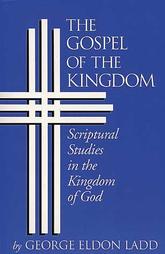[…]
Now who exactly is Jesus addressing here in these passages? I’m not sure, but it could be either of three possible kinds of claims to Jewish identity, or some combination of them. First, there is the reprehensible but less fatal error of expecting that native Jewish identity and heritage gives the natural born Jew special covenant rights and favor over other gentile brethren. This is in manifest contradiction to the “mystery” that Paul proclaimed among the gentiles. (This propensity is currently making a come back).
However, it appears that the Lord is here denouncing something that is much more pernicious. All error is costly but not all error is fatal; this is fatal. It is more than pride of ethnic identity. It is the really Satanic presupposition that there is something good in man (Mt 19:17; Ro 7:18). It is the principle of all works religion that looks for something in the power of the creature on which it can base its hope of salvation or even a prideful distinction above others that permits judgment of others (Lk18:9; 1Cor 4:7). It is simply trust in the flesh. So the “Synagogue of Satan,” is, in one form or another, really just “the church of pride.” […]
 […] There is a great book that was listed in “Christianity Today,” as one of the top 50 best evangelical books of the modern era. It is George E. Ladd’s, “The Gospel of the Kingdom: Popular Expositions on the Kingdom of God.” He also wrote another book that is currently out of print called, “Crucial Questions Concerning the Kingdom of God,” also, “The Presence of the Future.” He is ‘hands down’ my favorite on the subject. But you asked what the term means “to me”, and what it evokes in me, so I’ll say a little for myself on the subject. […]
[…] There is a great book that was listed in “Christianity Today,” as one of the top 50 best evangelical books of the modern era. It is George E. Ladd’s, “The Gospel of the Kingdom: Popular Expositions on the Kingdom of God.” He also wrote another book that is currently out of print called, “Crucial Questions Concerning the Kingdom of God,” also, “The Presence of the Future.” He is ‘hands down’ my favorite on the subject. But you asked what the term means “to me”, and what it evokes in me, so I’ll say a little for myself on the subject. […]



